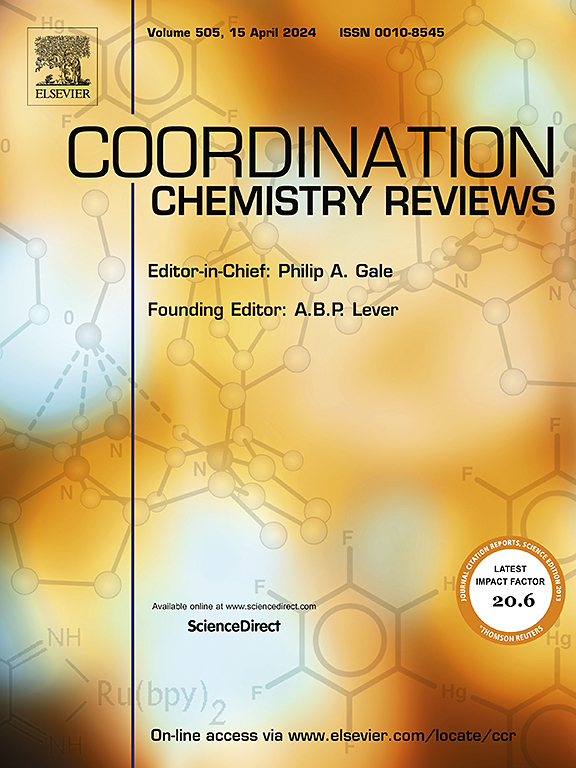Hemoglobin based oxygen carrier and its application in biomedicine
IF 20.3
1区 化学
Q1 CHEMISTRY, INORGANIC & NUCLEAR
引用次数: 0
Abstract
Oxygen is essential for biological metabolism. However, due to shortages in clinical surgeries, blood group incompatibilities, and the risk of infection transmission, there is an urgent need for a safe and efficient oxygen carrier to replace whole blood. Advances in biotechnology have led to the development of an oxygen carrier based on stroma-free hemoglobin (SFH), which has garnered significant interest because of its excellent biosafety profile and diverse sources. This review first introducing the structure of hemoglobin (Hb) and then classifies the membrane-free Hb-based oxygen carriers (HBOCs) based on chemical and genetic modifications of Hb. Additionally, the membrane-encapsulated HBOCs is categorized by the type of material used such as liposomes, polymers, metal-organ frameworks (MOFs), hydrogel and polysaccharide, and its advantages and disadvantages, as well as its suitability as an oxygen carrier, are analyzed. Furthermore, the application of the HBOCs in biomedicine is discussed. Finally, the remaining challenges and future prospects are examined. These innovative oxygen carriers offer significant advantages over traditional carriers and are poised to substantially advance research into practical and reliable oxygen carriers.
求助全文
约1分钟内获得全文
求助全文
来源期刊

Coordination Chemistry Reviews
化学-无机化学与核化学
CiteScore
34.30
自引率
5.30%
发文量
457
审稿时长
54 days
期刊介绍:
Coordination Chemistry Reviews offers rapid publication of review articles on current and significant topics in coordination chemistry, encompassing organometallic, supramolecular, theoretical, and bioinorganic chemistry. It also covers catalysis, materials chemistry, and metal-organic frameworks from a coordination chemistry perspective. Reviews summarize recent developments or discuss specific techniques, welcoming contributions from both established and emerging researchers.
The journal releases special issues on timely subjects, including those featuring contributions from specific regions or conferences. Occasional full-length book articles are also featured. Additionally, special volumes cover annual reviews of main group chemistry, transition metal group chemistry, and organometallic chemistry. These comprehensive reviews are vital resources for those engaged in coordination chemistry, further establishing Coordination Chemistry Reviews as a hub for insightful surveys in inorganic and physical inorganic chemistry.
 求助内容:
求助内容: 应助结果提醒方式:
应助结果提醒方式:


